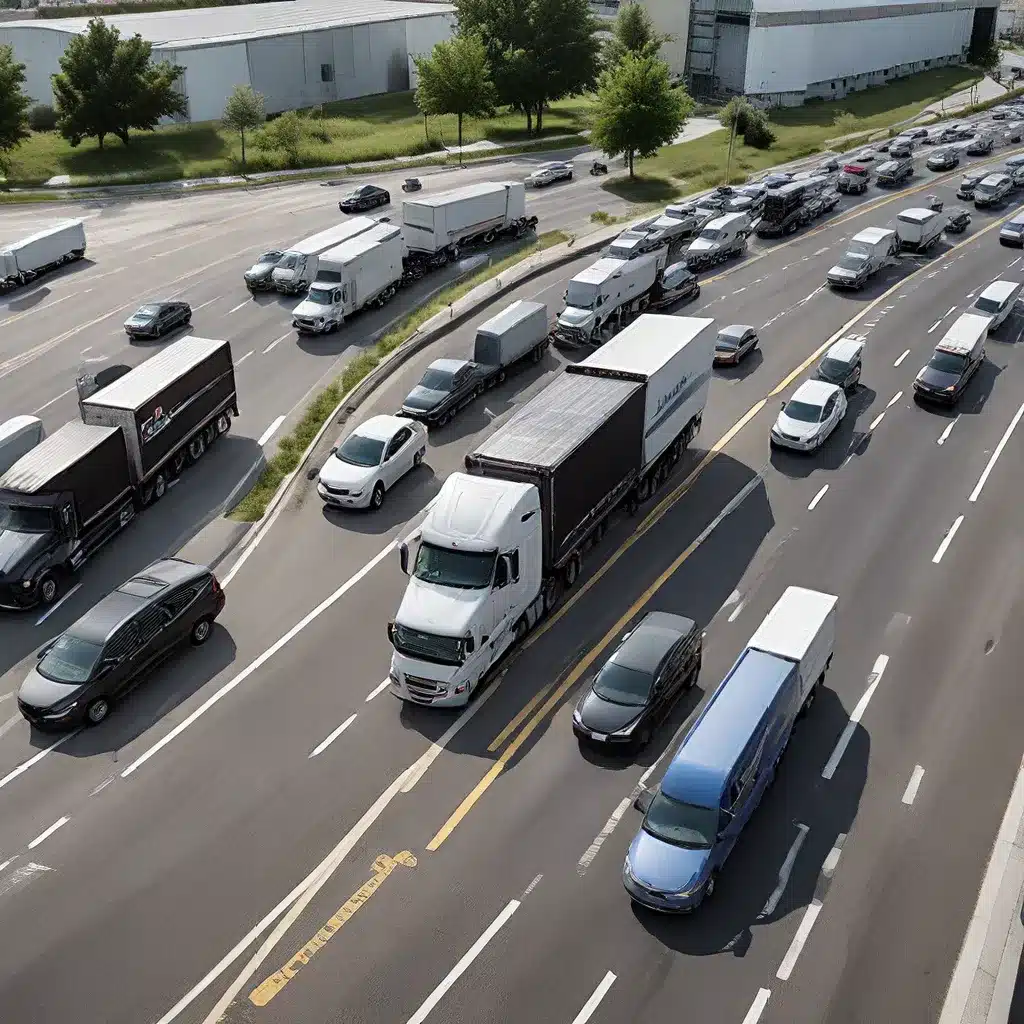
In the rapidly evolving landscape of transportation and logistics, sensor networks and IoT (Internet of Things) technologies have emerged as pivotal forces in transforming fleet management. By harnessing the power of data-driven insights, these advanced systems are revolutionizing the way fleet operators optimize vehicle utilization, enhance safety, and reduce environmental impact.
The Rise of Sensor-Enabled Fleet Management
At the heart of this transformation lies the integration of sensor networks and telematics solutions. Sensor-equipped vehicles collect a wealth of real-time data, including location, speed, fuel consumption, and driver behavior. This information is then seamlessly transmitted to centralized fleet management platforms, empowering operators with unprecedented visibility and control.
Sensor-Networks.org offers a comprehensive exploration of these cutting-edge technologies, delving into the applications, security considerations, and energy management strategies that are shaping the future of fleet operations.
Optimizing Vehicle Utilization
One of the key advantages of sensor-driven fleet management is the ability to optimize vehicle utilization. By leveraging GPS tracking, route optimization, and predictive analytics, fleet managers can ensure that each vehicle in the fleet is deployed efficiently, minimizing idle time and maximizing productivity.
Real-time vehicle tracking enables fleet managers to monitor the location and status of their assets, allowing for the dispatch of the nearest available vehicle to a task or client, reducing response times and enhancing overall operational efficiency. Moreover, advanced route planning algorithms that factor in traffic conditions, weather, and historical data can significantly reduce travel times and fuel consumption, leading to substantial cost savings.
Improving Safety and Compliance
Sensor networks play a pivotal role in enhancing the safety of fleet operations. Driver behavior monitoring systems, powered by computer vision and machine learning, can identify risky driving habits such as speeding, harsh braking, or distracted driving, and provide real-time feedback to drivers. This proactive approach not only promotes safer driving but also helps fleet managers mitigate the risk of accidents and maintain a strong safety record.
Furthermore, sensor-based solutions facilitate compliance with regulatory standards, such as the Federal Motor Carrier Safety Administration’s (FMCSA) Hours of Service (HOS) regulations. Electronic Logging Devices (ELDs) integrated with the fleet management system automatically track driver duty status and hours of service, ensuring adherence to legal requirements and reducing the administrative burden on fleet operators.
Reducing Emissions and Environmental Impact
As sustainability becomes an increasingly critical priority, sensor-driven fleet management is playing a pivotal role in reducing the environmental impact of transportation operations. Telematics data, combined with AI-powered analytics, can provide valuable insights into fuel efficiency, vehicle idling, and driving patterns, enabling fleet managers to implement targeted strategies to minimize emissions and optimize energy consumption.
The integration of alternative fuel vehicles, such as electric or hybrid models, further enhances the environmental sustainability of fleet operations. Sensor networks, in conjunction with charging infrastructure and energy management systems, can monitor the battery status, charging patterns, and power consumption of these eco-friendly vehicles, ensuring optimal performance and cost-effective operations.
Securing the IoT Ecosystem
While the advantages of sensor-driven fleet management are numerous, the security and privacy of the IoT ecosystem cannot be overlooked. Fleet operators must ensure that their sensor networks and data management systems adhere to robust cybersecurity protocols, mitigating the risk of unauthorized access, data breaches, and potential disruptions to fleet operations.
Strategies such as encryption, access controls, and regular software updates are crucial in safeguarding the integrity and confidentiality of sensitive fleet data. Additionally, compliance with industry-specific regulations, such as the General Data Protection Regulation (GDPR) and the California Consumer Privacy Act (CCPA), is essential to maintain the trust of customers and regulatory authorities.
The Future of Sensor-Driven Fleet Management
As the world continues to embrace the power of connectivity and data-driven decision-making, the future of fleet management is poised to be increasingly sensor-driven and intelligent. Emerging technologies, such as 5G networks, machine learning, and edge computing, will further enhance the capabilities of sensor-based systems, enabling real-time predictive maintenance, autonomous navigation, and seamless integration with broader transportation ecosystems.
By leveraging the transformative potential of sensor networks and IoT, fleet operators can optimize vehicle utilization, improve safety, reduce emissions, and enhance overall operational efficiency, positioning themselves for success in the rapidly evolving transportation landscape. The sensor-enabled future of fleet management is here, and the time to embrace this revolutionary approach is now.